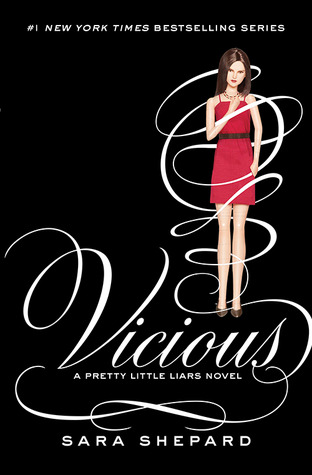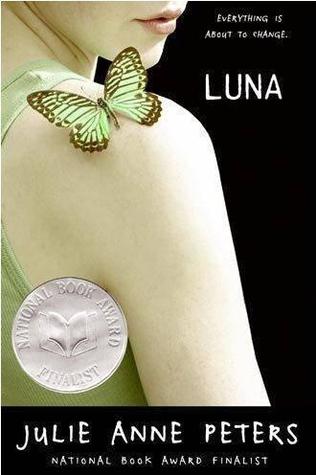Hello everyone! It's Dia, from over at Dark & Dangerous Tales of Novels! I am so happy to be able to do a guest post for my friend Paige today! ;)
As you can see from the title, we are going to be talking a little about historical fiction today and how you can make yours sound real. I don't know how many of you actually are historical fiction writers, but sometimes this can even apply to general fiction, science fiction and some of the other types. But mostly, it has to do with historical.
But first, you might want to know what historical fiction is, if you don't already.
But what are some examples of historical fiction?
One would be the Tudor Series by Philippa Gregory. I must admit that I have just started, within the last few days, reading these books. But have heard mostly good things about them and so far I agree. Notice, I said mostly. I have also heard a lot of people say that, though the stories were good, the actual historical part of the books were not what they should or could have been. Though his has to do mostly with historical accuracy, it still applies. She was dealing with real people and she had to make them real.
So that takes us to another question: what do we do to make our historical fiction sound real?
A question many writers of this genre, including myself, have slaved over time and time again and have still not seemed to come to a good enough answer. Because, when worst comes to worst, all you can do is your best.
When you finish a historical novel and go to the back (or sometimes the front) almost one-hundred percent of the time their will be an acknowledgments page. You will usually see this in every sort of book, thanking the publisher, agent and family members. But in a historical novel, when you look closely, a lot of the time there will be thanks going to different scholars for helping the author come to the place where they are.
So what did the scholar help them do? Easy, (alright, maybe not easy...). They told them about whatever time they are writing in. What the people ate, dressed in, talked about, the way they talked, where they went to the bathroom, how they lived. Anything and everything you can think about, because anything and everything is what the critics are going to be looking for.
Because if they find one little thing wrong, they will rip you to pieces.
Let me put it this way. Say, you are writing about the middle ages. Say, you're King and Queen are talking to each other. Please, tell me if this is right:
Queen: "Yo! What up, my man?"
King: "Naw, nothin', nothin'. I'm just rulin' the country, you know how it is."
I don't think so.
Do you research before and after you begin to write. As much as I hate to say it, when you are writing historical, it would probably be best to outline. Talk to people who know things. Don't go off your own thinking, because you probably don't know as much as you think you do. That is all you can do and hope for the best. Immerse yourself in that world.
I am writing a historical fiction novel right now called The Passion of Nobles. I have been doing research on this novel for almost, literally, the last year. Without giving too much away, I'd like to say that this is not something easy. I had to read books about the MC, listen to interviews with professor's that specialize in the subject I am working on. I had to watch endless episodes on the history channel about this. Now, for me this was all fun because of the fact I love history anyways. But because it was fun doesn't mean it is going to be easy; and it doesn't mean it is going to be fun for everyone. Some might find it to be the most boring and terrible thing that they ever had to do in life ever. As long as you are hitting your goal, though, it shouldn't matter.
Have any of you ever read the book Revolution? It is about a girl who finds the diary of a girl during the French Revolution. I finished reading it a few days ago and give or take a few things with the writing that I did not like, historically, it was good. There was nothing that crossed the line even though for a while I thought there might be.
In the end, as I said, you have to do your best, as much research you possibly can and take the advice of people who know more about these times then you do. Because you weren't there; and they don't talk like us.
Note: Sometimes, when writing historical fiction it is okay to write somewhat the way we speak in this day and age so your readers will understand what you are even trying to say, because most likely they were not there either. It all depends on whether it is too relaxed.
Well, that is enough from me! Come visit me soon at Dark & Dangerous Tales of Novels!
;)
As you can see from the title, we are going to be talking a little about historical fiction today and how you can make yours sound real. I don't know how many of you actually are historical fiction writers, but sometimes this can even apply to general fiction, science fiction and some of the other types. But mostly, it has to do with historical.
But first, you might want to know what historical fiction is, if you don't already.
| historical fiction: | a novel set among actual events or a specificperiod of history; |
One would be the Tudor Series by Philippa Gregory. I must admit that I have just started, within the last few days, reading these books. But have heard mostly good things about them and so far I agree. Notice, I said mostly. I have also heard a lot of people say that, though the stories were good, the actual historical part of the books were not what they should or could have been. Though his has to do mostly with historical accuracy, it still applies. She was dealing with real people and she had to make them real.
So that takes us to another question: what do we do to make our historical fiction sound real?
A question many writers of this genre, including myself, have slaved over time and time again and have still not seemed to come to a good enough answer. Because, when worst comes to worst, all you can do is your best.
When you finish a historical novel and go to the back (or sometimes the front) almost one-hundred percent of the time their will be an acknowledgments page. You will usually see this in every sort of book, thanking the publisher, agent and family members. But in a historical novel, when you look closely, a lot of the time there will be thanks going to different scholars for helping the author come to the place where they are.
So what did the scholar help them do? Easy, (alright, maybe not easy...). They told them about whatever time they are writing in. What the people ate, dressed in, talked about, the way they talked, where they went to the bathroom, how they lived. Anything and everything you can think about, because anything and everything is what the critics are going to be looking for.
Because if they find one little thing wrong, they will rip you to pieces.
Let me put it this way. Say, you are writing about the middle ages. Say, you're King and Queen are talking to each other. Please, tell me if this is right:
Queen: "Yo! What up, my man?"
King: "Naw, nothin', nothin'. I'm just rulin' the country, you know how it is."
I don't think so.
Do you research before and after you begin to write. As much as I hate to say it, when you are writing historical, it would probably be best to outline. Talk to people who know things. Don't go off your own thinking, because you probably don't know as much as you think you do. That is all you can do and hope for the best. Immerse yourself in that world.
I am writing a historical fiction novel right now called The Passion of Nobles. I have been doing research on this novel for almost, literally, the last year. Without giving too much away, I'd like to say that this is not something easy. I had to read books about the MC, listen to interviews with professor's that specialize in the subject I am working on. I had to watch endless episodes on the history channel about this. Now, for me this was all fun because of the fact I love history anyways. But because it was fun doesn't mean it is going to be easy; and it doesn't mean it is going to be fun for everyone. Some might find it to be the most boring and terrible thing that they ever had to do in life ever. As long as you are hitting your goal, though, it shouldn't matter.
Have any of you ever read the book Revolution? It is about a girl who finds the diary of a girl during the French Revolution. I finished reading it a few days ago and give or take a few things with the writing that I did not like, historically, it was good. There was nothing that crossed the line even though for a while I thought there might be.
In the end, as I said, you have to do your best, as much research you possibly can and take the advice of people who know more about these times then you do. Because you weren't there; and they don't talk like us.
Note: Sometimes, when writing historical fiction it is okay to write somewhat the way we speak in this day and age so your readers will understand what you are even trying to say, because most likely they were not there either. It all depends on whether it is too relaxed.
Well, that is enough from me! Come visit me soon at Dark & Dangerous Tales of Novels!
;)













5 comments:
Awesome post! I'm more into writing fantasy or adventure (or both), but I've thought sometimes about writing historical fiction (even though I never really have tried).
Alaw - It's fun! Sometimes when you are dealing with a person that there isn't much information on, you get to make their hole personality and that is one of the best parts for me.
And, of course, just learning about other times and places.
I've written several historical novels (or maybe "novellas" would be a better term! ;) but I decided to try some other genres, because you're right - when you write historical fiction, there are TONS of things to research. And currently, I don't feel like I have access to the resources I'd need to be accurate! So right now, I'm trying out a contemporary fiction. I'd also like to try dystopia and fantasy soon. :)
Good luck on your current WIP, though! :D
I've read almost all of Philippa Gregory's books, and they are pretty sketchy on the actual historical part. Especially "The Other Boleyn Girl."
Great post Dia! I don't write historical fiction but this was still great! Thanks so much for posting! :)
Post a Comment